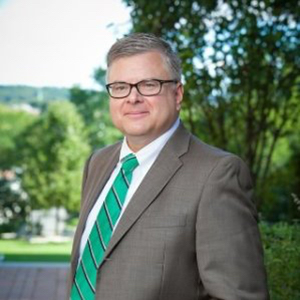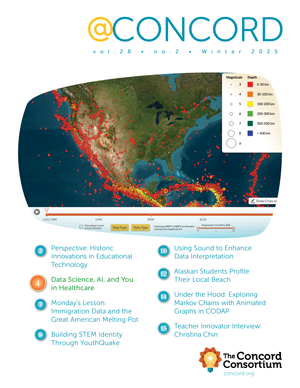News at Concord Consortium
Larry Behan New Chief Financial Officer

We are delighted to welcome Larry Behan as our new Chief Financial Officer. Before joining the Concord Consortium, Larry served as Vice President of Administration and Finance at the Massachusetts College of Liberal Arts, overseeing a wide array of projects from overall finances to facilities and technology. He has held executive-level positions in private healthcare, the University of Massachusetts Medical School, and the Commonwealth of Massachusetts.
A Boston area native and avid outdoor enthusiast with two main recreational seasons—golf and ski—Larry initially studied forest engineering at Oregon State University before working for the National Park Service at Olympic National Park in Washington for a year. After living in the Bay Area for a time, he moved back to the East Coast, where he earned a B.S. in economics from Northeastern University and a Master of Business Administration from Suffolk University.
With a background in higher education and experience with research projects in academia and healthcare, Larry explains that he was drawn to the opportunity to work in a mission-driven organization dedicated to educational innovation. He notes, “The Concord Consortium is made up of a great group who are passionate about their work, and have a fun, collaborative style.”
Narrative Modeling with StoryQ
We are proud to announce a new grant funded by the National Science Foundation to help high school students envision their future careers as powered by Artificial Intelligence (AI): Narrative Modeling with StoryQ—Integrating Mathematics, Language Arts, and Computing to Create Pathways to Artificial Intelligence Careers. AI is reshaping the world and all students will soon enter a workforce powered and transformed by ubiquitous intelligent agents. Today’s students must gain a fundamental understanding of how intelligence in computers is created, how machines learn from data, and how data are prepared for computers to learn meaningful patterns. Yet AI learning opportunities remain abstract and inaccessible, especially to underrepresented youth.
This project will leverage existing data exploration and text mining technologies and research-based pedagogical approaches to bridge this critical gap. Focusing on narrative modeling, one of the oldest fields in artificial intelligence, we will combine mathematics, language arts, and computing concepts and integrate them into a coherent learning experience for high school students. Led by learning technology and data experts from the Concord Consortium, machine learning experts from Carnegie Mellon University, and experts in the integration of narrative modeling and mathematics learning from North Carolina State University, we will create and test StoryQ, a web-based text mining and narrative modeling platform and an associated curriculum, and research student learning in text mining and development of AI career interest. Our goal is to broaden participation among underrepresented and underserved student populations.
Enhancing middle school mathematics learning
Thanks to funding from the National Science Foundation to the Concord Consortium and Michigan State University, we have developed and refined an innovative learning platform designed to engage middle school mathematics students in collaborative problem-solving based on the Connected Mathematics Project (CMP) problem-based curricula. With mathematics tools that include linked graphs and tables, text, images, and drawing tools, and the ability for students to share their work with teammates, the digital platform is designed to enhance student learning and promote productive disciplinary engagement. Using a class dashboard and full-featured teacher workspace, teachers can access and use student work for pedagogical decisions and create robust just-in-time supports for individual students, small groups, or the whole class.
If you are a middle grade math teacher who plans to teach the CMP3 units Stretching and Shrinking or Moving Straight Ahead to your seventh grade students in the 2020-21 school year and are interested in using this free software, we invite you to complete a short application.
